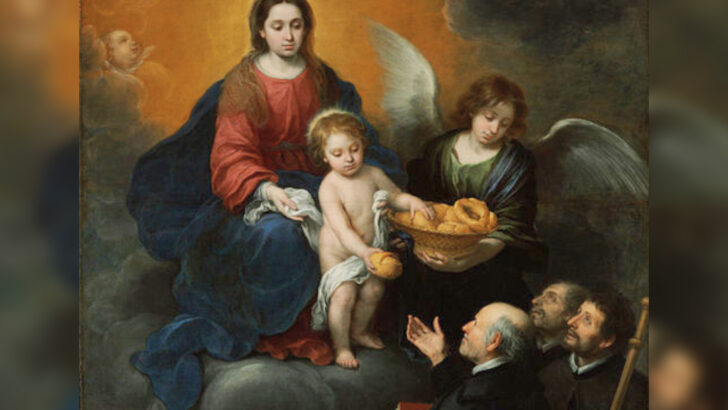The Sunday Gospel
Ex 16:2-4, 12-15
Ps 78:3-4, 23-24, 25, 54
Eph 4:17, 20-24
Jn 6:24-35
When you think about it, we got our first clue at Christmas.
It was there, in the very name of the town where Jesus was born: Bethlehem, a word which means in both Aramaic and Hebrew, ‘House of Bread’. His followers shouldn’t really have been puzzled or surprised when he told them, as we hear this Sunday in John’s Gospel, “I am the bread of life.”
It couldn’t be any other way.
But the now-famous words that Jesus utters in this passage are obviously about more than just food or sustenance. Jesus is telling us something we urgently need to hear. It’s about craving, desire, yearning – and the gnawing emptiness and holy longing that only he can fill.
Hunger
It’s no accident that this passage in John’s Gospel begins with people looking for Jesus – seeking for him to feed their particular hunger. When they finally find him, he tells them that he does more than provide bread for the multitudes. He turns their expectations upside down and states something bold and new. Searching for bread to feed you? The search is over. Look no further. Here is the bread of life.
Bread, of course, is a staple in every diet around the world. Google tells us that the earliest bread was made around 8,000 years before Christ in the Middle East, most notably in Egypt. Various forms of it eventually materialised in parts of Europe, India, Mexico and virtually every part of the globe, made not only from wheat but also from corn, barley and rice. It is truly the universal food.
So, it makes perfect sense that the Saviour who came for all would describe himself in a way that can be understood and consumed by all. Here he presents himself as a food that is not only ordinary, but humble and easily accessible.
Which makes his presence for us under the appearance of bread in the Eucharist even more understandable — and, in fact, even poignant.
It’s been said that part of the power of the Incarnation is that through this astounding act the Creator became part of creation. In a similar way, the One who is the source of everything shows a desire to share himself as almost nothing – a mere crumb of bread, a sliver of baked wheat, something that can be held in the palm of your hand and, even, broken and then shared.
Here is a generous love that almost defies human understanding.
This passage should spur all of us to wonder anew: Just what are we hungering for? What do we search for in Christ Jesus? What do we want him to give us?”
I don’t know that any of that mattered to the crowd that travelled by boat to Capernaum, looking for the rabbi who fed them. They were searching for the miracle worker who had done something astounding. Whether they realised it or not, they found someone even more remarkable.
“I am the bread of life,” he told them, “Whoever comes to me will never hunger and whoever believes in me will never thirst.”
This passage should spur all of us to wonder anew: Just what are we hungering for? What do we search for in Christ Jesus? What do we want him to give us?
The one who fed a multitude continues to feed multitudes today through the Eucharist, through his Word, through his boundless generosity that has redefined for all time mercy, sacrifice and love.
He’s more than a wonder worker, more than a rabbi, more than baker who knows how to fill empty stomachs. As a familiar hymn puts it, he satisfies the hungry heart, with gift of finest wheat.
Here is the bread of life.
Who could crave anything more than that?
Deacon Greg Kandra is an award-winning author and journalist, and creator of the blog The Deacon’s Bench.



